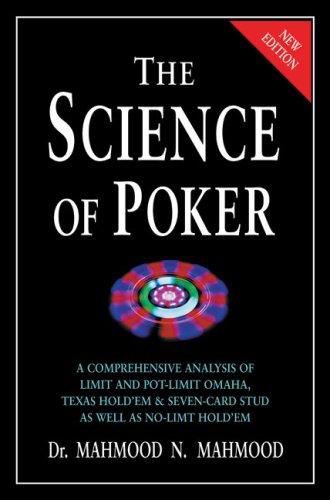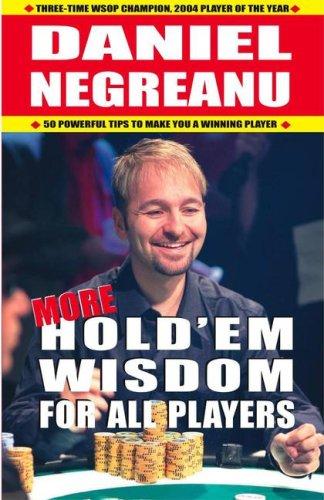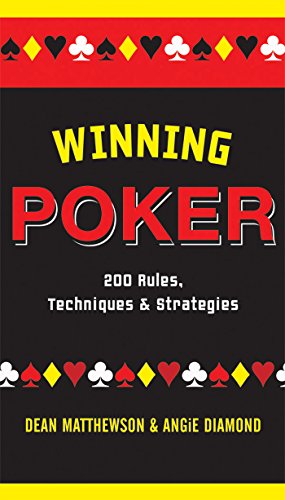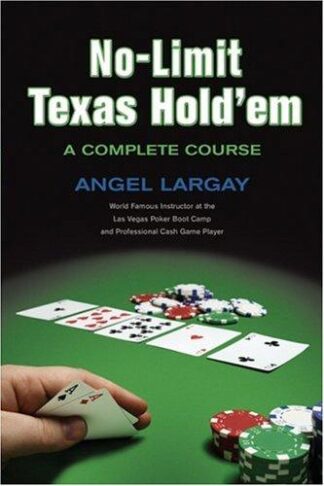The Science of Poker
Average price online: $15.00
Based on The Cover
This revolutionary gambling book offers a comprehensive analysis of Limit and Pot-Limit Omaha, Texas Hold ’em, and Seven-Card Stud, as well as No-Limit Hold ’em. It provides a general discussion of the three primary skills of poker—”people, probabilities, and money”—and includes a detailed overview of starting-hand selection and simple methods for calculating probabilities relevant to these games. Additionally, the book features analyses of a hundred examples of the most common situations in “after the flop play” for Omaha and Hold ’em, and “beyond the fourth street” play for Seven-Card Stud.
TL;DR - Important Takeaways
1. Poker is a game that requires skill in three areas: understanding opponents’ playing styles, calculating odds and expected value, and money management.
2. Position is extremely important in poker, especially in pot-limit games. Having position on your opponents provides a significant advantage.
3. In limit games, draws need to have positive expected value to be profitable in the long run. This can be determined by comparing pot odds to the probability of making your draw.
4. Implied odds are very important in pot-limit games and should factor heavily into decisions, especially with concealed draws. Seven Card Stud offers the greatest implied odds potential.
5. In Omaha and Hold’em, strong starting hand selection is critical. Hands that can play well against multiple opponents are ideal. Avoid getting attached to big starting hands if the flop doesn’t improve them.
6. Betting is usually preferable to calling in order to get value from weaker hands and define your opponents’ holdings. Bluffing should be done selectively from late position.
7. In tournaments, accumulating chips in the middle stages is crucial to survive the increasing blind levels.
8. Using pot odds, implied odds, combinatorics and probability calculations can provide a mathematical edge when making decisions, especially in limit games. Memory of discarded cards is a key skill in Seven Card Stud.
9. Online poker requires quicker decisions with less physical tells compared to live games. Multi-tabling and playing more hands per hour enable an effective tight-aggressive strategy.
Poker rewards a disciplined, calculated approach that leverages position, hand selection, aggression and card reading skills while minimizing losses from difficult situations. Mathematics provides the foundation for profitable play.
What We Learned From Reading the Book
This book provides a comprehensive and detailed look at poker strategy across multiple variants of the game. The book dives deep into the math and provides many concrete examples.
Some specific details that were new to us:
- The exact break-even win rate calculations for various situations in Omaha
- How severely the number of seen cards impacts the probability of making a flush in 7-Card Stud
- The hand combination calculations for holding an Ace in Texas Hold’em and the chances an opponent has you outkicked
- The prevalence of certain flop textures containing pairs, straights, and flushes
- How the expected value of implied odds changes based on stack sizes in pot-limit
The author’s mathematical approach and dissection of so many common scenarios certainly added some new and valuable details to our understanding of poker strategy.



